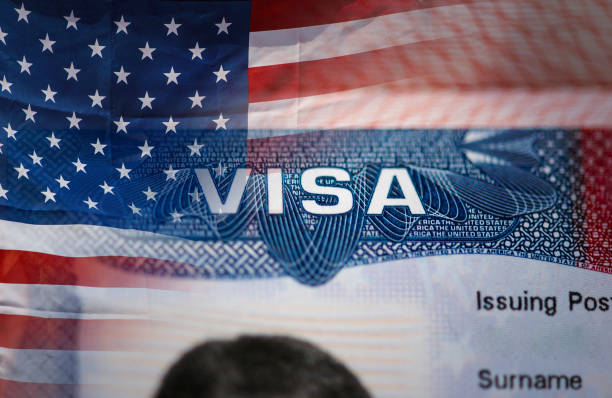The United States is a land of opportunity, and many people from around the world are attracted to the country for its dynamic economy, culture, and lifestyle.
However, one of the biggest challenges for foreigners who want to move to the U.S. is getting a U.S. Visa. There are many different types of visas available, each with its own requirements and restrictions.
For entrepreneurs, starting a company in the U.S. may seem like a good way to obtain a visa, but is this really the case? In this article, we will explore whether starting a company in the U.S. makes it easier to get a U.S. visa and how it can be done.
Types of Visas for Entrepreneurs
While starting a company in the U.S. may seem like a good way to obtain a visa, it is not necessarily a guaranteed path to obtaining one. In fact, the visa options available to entrepreneurs who start companies in the U.S. are limited and can be challenging to obtain.
E-2 Visa
One of the most popular U.S. Visas for entrepreneurs is the E-2 visa. This visa is available to individuals who invest a substantial amount of money in a U.S. business and are actively involved in its management. However, to be eligible for this visa, the individual must be a citizen of a country that has a treaty of commerce and navigation with the U.S. This means that citizens of certain countries, such as China and India, are not eligible for this visa.
In addition, the investment made by the individual must be considered “substantial” and must be enough to ensure the success of the business. The exact amount required for an E-2 visa varies depending on the type of business and the location, but generally, the investment must be in the range of $100,000 to $200,000.
L-1 Visa
Another visa option for entrepreneurs is the L-1 visa, which allows a foreign company to transfer an employee to a U.S. branch or subsidiary. This visa is only available to individuals who have worked for the foreign company for at least one year within the last three years and are coming to the U.S. to work in a managerial or executive capacity or in a position that requires specialized knowledge. This means that the individual must have a high level of experience and expertise in their field to be eligible for this visa.
H-1B Visa
The H-1B visa is another option for entrepreneurs who want to start a company in the U.S. This visa allows U.S. employers to hire foreign workers in specialty occupations. However, to qualify for this visa, the foreign worker must have a bachelor’s degree or higher in the field of the intended employment. This means that individuals who want to start a company in the U.S. may not be eligible for this visa if they do not have the required educational qualifications.
O-1 Visa
Finally, the O-1 visa is available to individuals with extraordinary ability or achievement in the sciences, arts, education, business, or athletics. This visa allows individuals to come to the U.S. to work in their field of expertise. However, obtaining an O-1 visa can be challenging, as the individual must demonstrate that they have achieved a high level of recognition in their field.
Does Starting a Company in the U.S. Make it Easier to Get a Visa?
Yes, starting a U.S. company can potentially make it easier to obtain a U.S. Visa, but the process is not straightforward, and there are no guarantees. To better understand the nuances, it’s important to examine the two visa categories that are most applicable to entrepreneurs: the E-2 and L-1 visas.
The E-2 visa is designed for entrepreneurs who want to invest a substantial amount of money in a business in the U.S. and who come from countries that have a treaty of commerce and navigation with the U.S. To qualify for an E-2 visa, an individual must own at least 50% of the U.S. business and must have already invested or be actively in the process of investing a significant amount of capital into the company.
The investment amount varies depending on the type of business, but it generally should be enough to demonstrate that the business has a reasonable chance of success. In addition to meeting the investment requirements, the individual must also prove that they have the skills and experience necessary to run the business successfully.
The L-1 visa, on the other hand, is designed for intra-company transferees who are moving from a foreign branch or subsidiary of a U.S. company to work at the U.S. parent, affiliate, or subsidiary company. The L-1A visa is for executives and managers, while the L-1B visa is for employees with specialized knowledge.
To qualify for an L-1 visa, the U.S. and foreign companies must have a qualifying relationship, such as a parent-subsidiary, branch, or affiliate relationship. Additionally, the individual must have worked for the foreign company for at least one year in the past three years and must be coming to the U.S. to work in a managerial or executive capacity or to apply specialized knowledge to the U.S. company.
In both cases, having a qualifying business in the U.S. is a prerequisite for applying for the U.S. Visa, but it’s not the only requirement. For example, even if an individual has a qualifying U.S. business for an E-2 visa, they must also meet the skills and experience requirements and demonstrate that the business has a reasonable chance of success. Similarly, for an L-1 visa, the individual must have worked for the foreign company in a qualifying capacity for at least one year and must be coming to the U.S. to work in a managerial or executive capacity or to apply specialized knowledge.
In addition to meeting the requirements of the specific visa category, individuals applying for a U.S. Visa must also provide strong evidence to support their application. This includes demonstrating ties to their home country, such as family or property ownership, and providing documentation to show that they intend to return home after their visa expires. They must also provide detailed information about their U.S. business, including a business plan, financial projections, and evidence of investment.
In summary, starting a company in the U.S. can make it easier to obtain a U.S. visa, but it’s not a guarantee. Individuals must still meet all of the requirements of the specific visa category they are applying for and provide strong evidence to support their application. Additionally, the process can be complex and time-consuming, so it’s important to work with an experienced immigration attorney to ensure the best chance of success.
How to Start a Company in the U.S. as a Foreign Entrepreneur
Starting a business as a foreign entrepreneur in the United States can be a complex process, but with careful planning and preparation, it can be done successfully. Here are the steps you should take:
Choose a Business Structure
The first step in starting a business in the U.S. is to choose a business structure. The most common structures for small businesses are sole proprietorship, partnership, limited liability company (LLC), and corporation. Each structure has its own advantages and disadvantages, so it’s important to do your research and consult with a lawyer or accountant before making a decision.
Sole Proprietorship: This is the simplest and least expensive business structure to set up. It is owned and operated by one person who is personally liable for all debts and obligations of the business.
Partnership: This is a business structure in which two or more people share ownership and management of the business. Partnerships can be general partnerships, where all partners have unlimited liability, or limited partnerships, where one or more partners have limited liability.
Limited Liability Company (LLC): This is a popular business structure for small businesses because it provides limited liability protection for the owners while allowing them to be taxed as a partnership. LLCs can have one or more owners, known as members.
Corporation: This is a separate legal entity that is owned by shareholders. Corporations can be taxed as separate entities, which can result in double taxation, or as S corporations, which allows for pass-through taxation.
Choose a State and Register the Business
Once you have chosen a business structure, the next step is to choose a state and register the business. Each state has its own requirements and fees for registering a business, so be sure to research the specific requirements for the state you choose.
Obtain a Tax ID Number
Every business in the U.S. is required to have a tax ID number, also known as an employer identification number (EIN). This number is used to identify your business for tax purposes and is required to open a business bank account, hire employees, and file tax returns. You can obtain an EIN for free from the IRS.
Open a Business Bank Account
Once you have obtained an EIN, you can open a business bank account. This will allow you to keep your personal and business finances separate, which is important for tax and legal purposes.
Obtain Business Licenses and Permits
Depending on the nature of your business, you may need to obtain various licenses and permits from federal, state, or local agencies. Be sure to research the specific requirements for your business and obtain any necessary licenses and permits before starting operations.
Hire Employees
If you plan to hire employees for your business, you will need to comply with U.S. labor laws and regulations. This includes obtaining workers’ compensation insurance, complying with minimum wage and overtime laws, and verifying the employment eligibility of your workers.
Apply for a U.S. Visa
Once your business is up and running, you can apply for a U.S. Visa to live and work in the U.S. There are several visa categories available for entrepreneurs, including the E-1 treaty trader visa, E-2 treaty investor visa, and the EB-5 immigrant investor visa. Be sure to carefully review the requirements for each visa category and provide strong evidence to support your application.
In summary, starting a business in the U.S. as a foreign entrepreneur involves choosing a business structure, registering the business in a chosen state, obtaining an EIN, opening a business bank account, obtaining necessary licenses and permits, complying with U.S. labor laws and regulations if hiring employees, and applying for a U.S. Visa if necessary. It is recommended to consult with a lawyer or accountant to ensure compliance with all applicable laws and regulations.
Conclusion
Starting a company in the U.S. can make it easier to obtain a U.S. Visa, but it’s important to note that there are still many requirements and hurdles to overcome. Foreign entrepreneurs must choose a business structure, register their business, obtain necessary licenses and permits, hire employees, and comply with U.S. labor laws and regulations. Additionally, they must meet all of the requirements for the visa category they are applying for and provide strong evidence to support their application. Despite the challenges, starting a company in the U.S. can be a rewarding and worthwhile endeavor for entrepreneurs who are willing to put in the work and meet the requirements.
It’s also important to note that the U.S. has been known for its startup culture, with many successful companies such as Google, Apple, and Facebook having been founded in the country. This has led to a welcoming environment for foreign entrepreneurs looking to start their own businesses in the U.S. In fact, a study conducted by the Kauffman Foundation found that immigrants are more than twice as likely as native-born Americans to start their own businesses.
Additionally, the U.S. government has recognized the value that foreign entrepreneurs bring to the country’s economy and has made efforts to encourage their entrepreneurship. In 2017, the International Entrepreneur Rule (IER) was introduced, which would have allowed foreign entrepreneurs to stay in the U.S. for up to five years to develop their startups. Although the IER was ultimately rescinded in 2018, it demonstrates that the U.S. government is aware of the benefits of foreign entrepreneurship and is taking steps to support it.
Another factor to consider is the access to capital that starting a company in the U.S. can provide. The U.S. is home to many venture capital firms and angel investors who are eager to invest in promising startups. Additionally, the U.S. government offers various grant programs and tax incentives for small businesses, which can provide financial support for foreign entrepreneurs.
However, it’s important to note that starting a company in the U.S. does not guarantee a U.S. Visa. Each visa category has its own specific requirements, and entrepreneurs must meet all of them to be eligible for a visa. Additionally, there is no guarantee that the visa application will be approved, as the U.S. government carefully scrutinizes each application to ensure that the applicant meets all of the requirements.
In conclusion, starting a company in the U.S. can make it easier to obtain a U.S. Visa, but it is not a guarantee. Foreign entrepreneurs must navigate the complex process of starting a business in the U.S., comply with U.S. laws and regulations, and meet all of the requirements for the visa category they are applying for. Despite the challenges, however, the U.S. remains an attractive destination for foreign entrepreneurs looking to start their own businesses and make a positive impact on the country’s economy.



